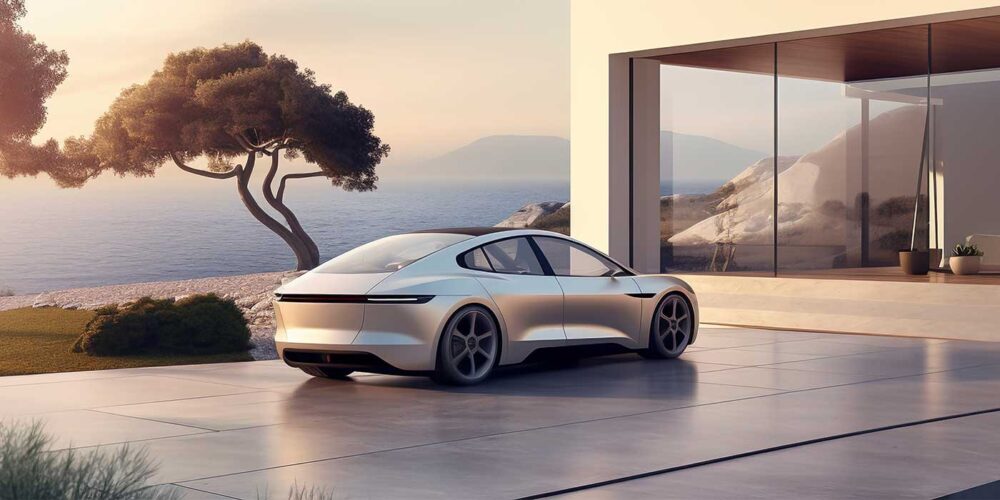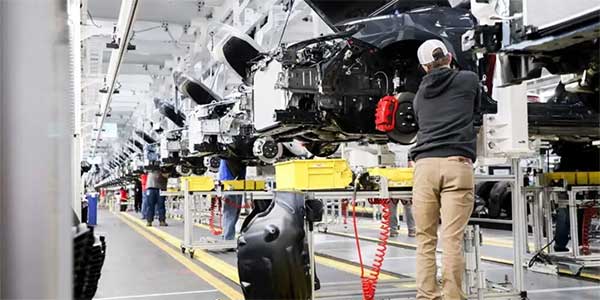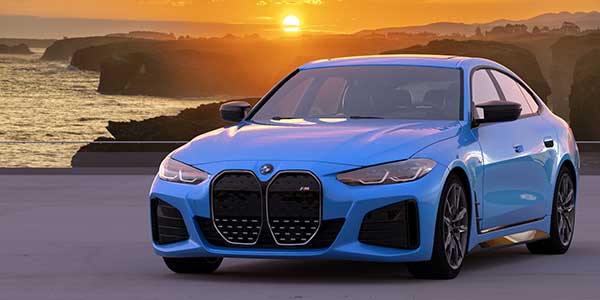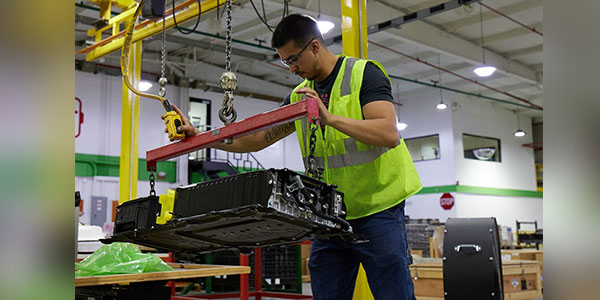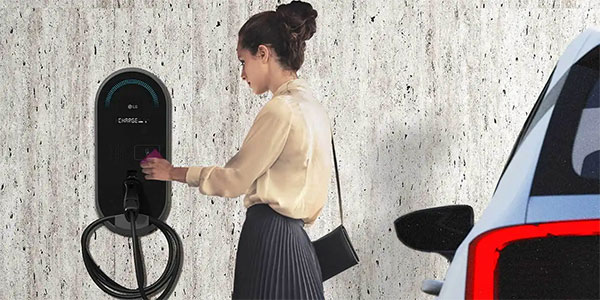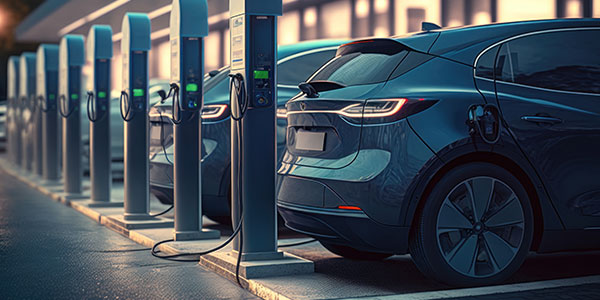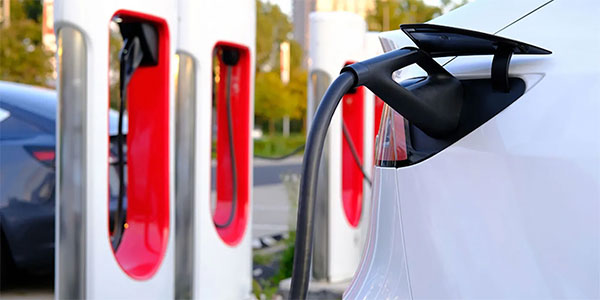The average price Americans paid for a new vehicle in August 2023 was virtually flat compared to one year ago, as higher inventory levels and increased incentives held year-over-year price gains in check. The average transaction price of a new vehicle in August was $48,451, up only $42 from one year ago, according to Kelley Blue Book, a Cox Automotive company. Prices increased 0.6% ($286) from July’s revised ATP of $48,165. Transaction prices are now down 2.4%, or $1,212, from the start of the year, the largest decrease in the past decade.
“After a tumultuous last few years in the automotive marketplace, now we are seeing new-vehicle pricing trends hold steady,” said Rebecca Rydzewski, research manager at Cox Automotive. “Dealers and automakers are feeling price pressure, and with high auto loan rates and growing inventory levels, new-vehicle prices seem to have hit a ceiling, at least for now. The very real potential for a UAW strike may impact some product lines, but with the current inventory levels in place, we don’t expect a short-lived strike to impact consumer prices in any meaningful way, at least in the near term.”
Led mostly by aggressive price cuts from Tesla, luxury vehicle prices last month were down 3.3% year over year. Tesla ATPs have plummeted 19.5% compared to August 2022 as the brand pushes for higher volume. Tesla Model 3 prices are down more than 21% year over year. Luxury vehicle incentive levels also have significantly increased year over year, rising from an estimated 1.9% of ATP to 5.3% last month. Luxury vehicle sales in August were up 23% year over year, helping to push overall industry volume higher by more than 16%. During the same timeframe, non-luxury sales were higher by 15%.
Non-Luxury Vehicle Prices Increase Less Than 1% Year Over Year
The average price paid for a new non-luxury vehicle in August was $44,827, an increase of only 0.7% from one year ago. Compared to last month, non-luxury prices were down $169. The average incentive spend in the non-luxury segment was 4.7% of ATP in August, up from 2.3% one year ago. Month over month, incentive spending was up 9.5%, increasing from 4.3% of ATP to 4.7%.
Only three vehicle segments had average transaction prices below $30,000 in August – compact cars, subcompact cars and subcompact SUVs. All three segments saw month-over-month price declines. Last month’s lowest priced vehicles in the U.S. market were the Mitsubishi Mirage and Kia Rio, and both are expected to be discontinued in the coming years as the market shifts to compact SUVs. The three best-selling segments in the market – midsize SUVs, compact SUVs and full-size pickup trucks accounted for 45% of sales volume in August and had ATPs of $46,381, $35,688 and $65,567, respectively.
Average Luxury Prices Down Year Over Year, Largest Decline in a Decade
While luxury vehicle prices in August increased modestly over July, prices were down 3.3% year over year to $64,107. Since the start of 2023, luxury prices have declined by more than 4%. Overall, the luxury segment continued to deliver strong results in August, holding 18.8% share of the U.S. market.
Tesla price cuts have offset price gains by many luxury automakers. Audi, BMW and Mercedes all booked year-over-year price increases in August, with Audi and Mercedes ATPs up more than 10%. Cadillac, Land Rover, Lexus and Lincoln also posted price increases. Brands that posted year-over-year price declines included Buick, Infiniti, Jaguar and Volvo.
Electric Vehicle Prices Continue to Decline
EV prices continue to fall, led again by market leader Tesla. In August, the average price paid for an electric vehicle was $53,376, down from $53,633 in July and down from more than $65,000 one year ago. Incentives for EVs in August were 8.1% of ATP, or $4,298. Tesla price declines are driving market prices lower. In August, Model 3 transaction prices were down 21% year over year, while Model S was down 17%, Model Y dropped 16%, and Model X was down 13%.
At the start of September, EV availability (as measured by days’ supply) was well above the industry average as product availability and EV production rapidly increases. According to the Q3 2023 Cox Automotive Dealers Sentiment Index, franchised automobile dealers have declining expectations for EV sales in the coming months.
Cox Automotive Chief Economist Jonathan Smoke notes, “Dealers are realizing this is not going to be an easy road in the short term, especially for some brands. However, the pressure dealers feel is from over-supply rather than a lack of demand. I see this as a natural speed bump and an expected part of growth. The No. 1 issue for consumers is price, and that’s a barrier even to considering an electric vehicle. As an economist, I can confidently predict that surplus inventory and increased competition will eventually drive down prices, which will help with EV consideration and adoption.”
Auto Incentives Offered by Manufacturers Reach One-Year High
Incentives averaged $2,365 in August to reach the highest point in a year, increasing to 4.9% of ATP compared to 4.5% in July. While August incentives increased by $221 month over month, they remain historically low. For comparison, Kelley Blue Book estimates incentives averaged 10.8% of ATP in August 2020 and 10.5% in August 2019.
ATP, followed by electric vehicles at 8.1%, luxury cars at 8.0%, entry-level luxury cars at 7.3% and full-size pickup trucks at 6.1%. Vans, high-performance cars, and small and midsize pickup trucks had some of the lowest incentives in August.

